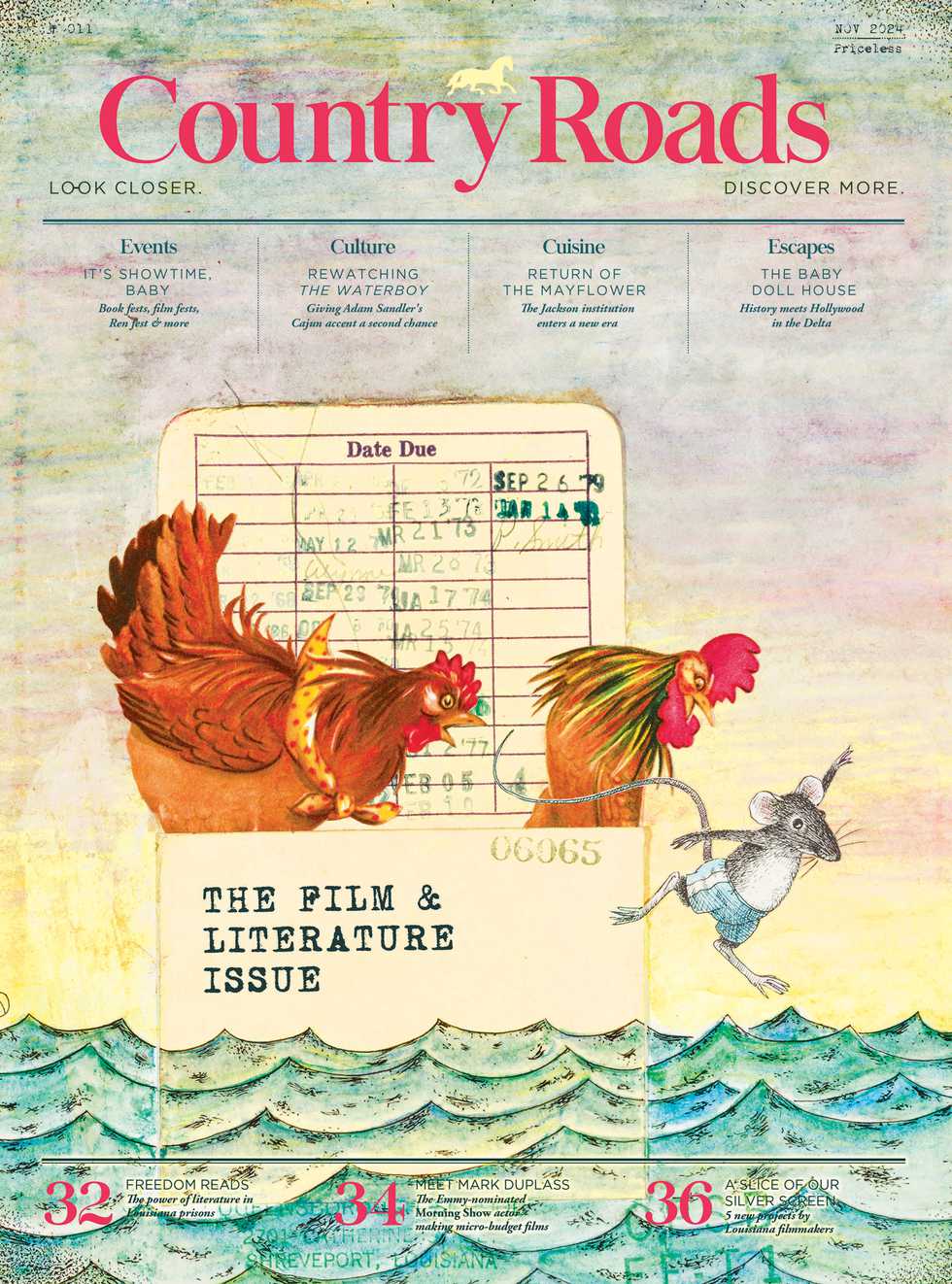It’s 8 am on a sunny, crisp Saturday morning in Baton Rouge and a bell clangs, its cheery ring signaling the weekly opening of the Red Stick Farmers Market. Dozens of shoppers are already in position, eager to be first in line for local produce and artisan foods. This time of year, leafy greens, root vegetables, fresh meats, dairy products, baked goods and more are in full supply at more than 50 indoor and outdoor booths hosted by farmers and producers from 14 Louisiana parishes.
“When you see pecans from Waterproof, sweet potatoes from Opelousas and fresh shrimp from the Gulf of Mexico, it’s like taking a culinary tour of Louisiana,” said Darlene Rowland, executive director of BREADA (Big River Economic Development Alliance), which runs the Red Stick Farmers Market and other programs that foster a local sustainable food system. “And they’re taking this culinary tour in the shadow of the Louisiana state capitol. I think there’s something special about that.”
With its fresh food, small batch products and family friendly vibe, the Red Stick Farmers Market is one of Baton Rouge’s most beloved events, drawing both locals and visitors. “We’re often told by people who have just moved to Baton Rouge that the farmers market makes the city feel more livable,” Rowland said. “For many people, a thriving farmers market is a very important quality of life indicator.”
This month, BREADA is celebrating its 26th anniversary, making it the second oldest farmers market organizer in Louisiana and a statewide leader in sustainable food policy. BREADA was founded in 1996 by then-LSU Robert Reich School of Landscape Architecture faculty member Suzanne Turner and graduate student Christopher Campany as part of his master’s thesis. The market mirrored the nationwide local foods movement.
“When you see pecans from Waterproof, sweet potatoes from Opelousas and fresh shrimp from the Gulf of Mexico, it’s like taking a culinary tour of Louisiana.”
Today, BREADA hosts four weekly farmers markets in Baton Rouge that give 50 farmers and producers the opportunity to sell directly to consumers. For many vendors, it’s been an economic game changer.
“The one thing that has been steadfast in my business has been the Red Stick Farmers Market,” said Ponchatoula farmer William Fletcher, who sells strawberries and other specialty crops at the Tuesday, Thursday and Saturday markets. “For that, I’m imminently thankful.”
BREADA’s work doesn’t stop at farmers markets. The five-staff-member nonprofit also manages the Main Street Market, a public indoor market in downtown Baton Rouge that hosts restaurants, retailers and Saturday market vendors. BREADA also runs the Small Farm Survival Fund, which provides emergency support to regional farmers experiencing business interruption due to natural disaster.
“It really lets you know that people are out there thinking about you,” said Lance Nacio of Anna Marie Seafood, a Lafourche Parish shrimping company that recently benefited from the fund. “The check they issued is going to help my employees get roofs on their houses so they can get back out fishing.”
BREADA also advocates for equitable food policy, working with the Louisiana Legislature to pass “Greaux the Good,” new funding that gives all Louisiana farmers markets access to funding to provide dollar-for-dollar matching to SNAP benefit card holders. “Greaux the Good means a SNAP benefit holder can swipe their card for $10 and we’ll give them $20 worth of market tokens to spend at the market,” Rowland said. SNAP Match has long been offered at the Red Stick Farmers Market, thanks to a sponsorship from Louisiana Healthcare Connections, and BREADA's experience with the program has provided leadership to ensure that smaller communities in different parishes can do the same. Funded by the state of Louisiana, Greaux the Good is the result of BREADA's state-wide advocacy, and has become a national model for its work in connecting low-income residents with fresh, healthy food while also supporting small businesses.
Farm to School
BREADA’s projects also include kids. Ensuring the next generation of Louisianans know where their food comes from, the organization coordinates youth programming at its farmers markets, as well as a Farm to School program currently taking place in three Baton Rouge area public schools. The Farm to School program brings a live farmers market experience to each campus as well as cooking demos that show kids how to transform fresh produce into yummy new dishes.
“The farmers market is our public face,” Rowland says, “but there’s so much more to BREADA. Everything we do is about creating a sustainable food system that is available to everyone.
BREADA’s programs are made possible by community support from people like you. Make a tax-deductible gift today to support BREADA’s work.










